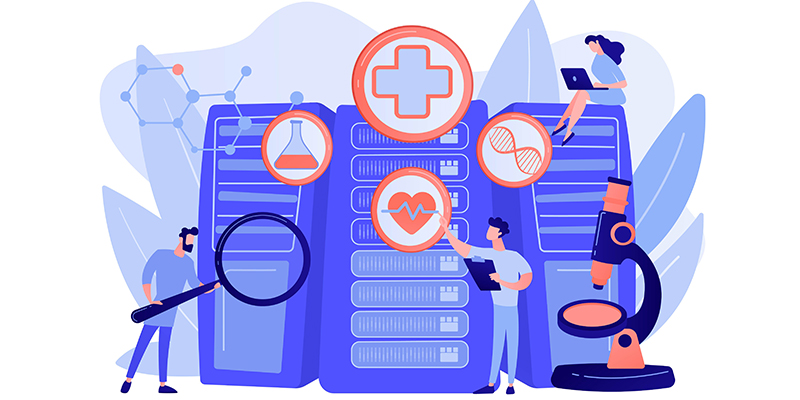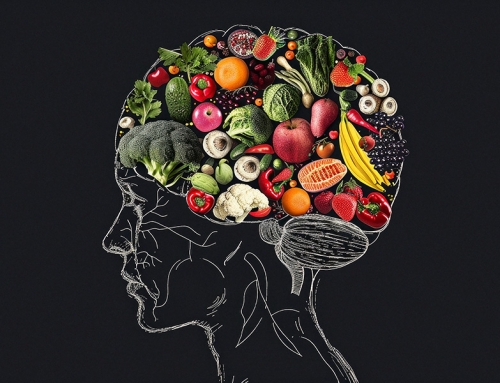Introduction to Nutrition Informatics and its Role in Healthcare
Nutrition informatics is the management of the information dietetics experts use to practise successfully while personalising suggestions to each patient’s requirements. It also assures compliance with EHR (electronic health records) laws. Integration of informatics in nutrition into health systems involves utilising information technology, data analysis, and communication systems to enhance the effectiveness and efficiency of nutrition-related processes in healthcare. [1]
The Burden of Chronic Diseases and the Need for Innovative Approaches
Chronic diseases have a high global prevalence and impact, leading to significant mortality, morbidity, healthcare costs, and economic burdens. Reduced chronic illness burden is a worldwide concern that necessitates collaboration across academic fields and economic sectors. Effective management of chronic diseases is important for improving the health and well-being of individuals, reducing healthcare costs, and enhancing overall population health. [2]
Traditional chronic disease management challenges include a reactive approach, fragmented care, limited patient engagement, treatment compliance, resource constraints, inadequate self-management support, data integration issues, emphasis on acute care, limited technology use, and health disparities. Addressing these challenges requires a patient-centred, proactive, and integrated approach to improve outcomes.[3]
Major chronic illnesses such as coronary artery disease (CAD), ischemic stroke, diabetes, and various malignancies have shifted from being prevalent only in high-income nations to being leading drivers of morbidity and mortality globally. This change is linked to environmental factors such as diet and lifestyle rather than genetic factors. Prospective epidemiological studies and prevention trials have identified modifiable dietary and lifestyle risk factors as significant contributors to these chronic diseases. The findings suggest that prevention is achievable through changes in smoking habits, physical activity, and diet, without relying solely on medical treatments.[4]
Leveraging Nutrition Informatics for Personalized Dietary Assessment
Nutrition informatics integrates technology to collect and analyze dietary data, allowing for personalized dietary assessments. This approach utilizes data from electronic health records, mobile apps, and wearable devices to create tailored nutrition plans based on individual health needs and preferences. Personalized dietary assessments provide tailored nutrition recommendations for chronic disease patients, addressing their unique health conditions, medication interactions, and dietary restrictions. This approach improves patient compliance, optimizes treatment outcomes, and helps prevent complications associated with chronic diseases. Nutrition informatics streamlines dietary tracking through automated data collection and analysis. It enables real-time monitoring of dietary habits, nutrient intake, and lifestyle changes, leading to more accurate and timely adjustments to dietary interventions. This data-driven approach enhances the efficiency of healthcare providers in managing patients’ nutritional needs.[5]
The Power of Big Data in Nutritional Research and Insights
New and developing technologies have resulted in the acquisition and exponential expansion of massive volumes of information, colloquially known as “big data.” The capacity to generate massive data sets is revolutionising every aspect of society, including public health and nutrition results in particular. By finding trends and patterns across populations, concentrating emphasis on specific problem areas, and monitoring the success of food and nutrition policies and programmes, data analytics is being utilised to enhance global nutrition outcomes. Innovative data-driven techniques are improving food availability and nutritional outcomes for individuals and communities alike. [6]
Mobile Apps and Wearable Devices: Facilitating Self-Management
The necessity of evaluating nutrition smart technology and smart sensor needs is critical in responding to the global nutrition crisis based on evidence of early detection and affordable nutrition methods and interventions. In essence, nutritious and diet regulations institutions or religious courses of study improving, understanding, and assessment are vital for managing yourself and improving efficiency, and wellness (Pelletier et al., 2013). Thus, early nutritional identifying indicators in informing, and teaching on suitable and accurate safeguarding and control/regulation strategies for decreased or too much energy consumption or unbalanced diets provide new continuous detection and monitoring tools needs for both populations at risk, professionals, and related interested parties (Katzmarzyk et al., 2014; Keadle et al., 2014). [7]
Telehealth and Virtual Coaching for Remote Chronic Disease Management
The use of telehealth in nutrition counselling and support has surged (especially since covid 19 ), providing remote access to healthcare professionals for chronic disease management. Virtual coaching, through video consultations and digital platforms, positively impacts patient adherence to treatment plans and lifestyle modifications. Overcoming barriers like distance and limited access to healthcare facilities, remote care facilitates regular monitoring and support for patients, leading to more effective management of chronic diseases. Telehealth and virtual coaching offer convenient, personalized care, improving patient outcomes and empowering individuals to actively participate in their health management from the comfort of their own homes.[8]
Integrating Electronic Health Records (EHR) with Nutrition Informatics
The use of telehealth in nutrition counselling and support has surged, providing remote access to healthcare professionals for chronic disease management. Virtual coaching, through video consultations and digital platforms, positively impacts patient adherence to treatment plans and lifestyle modifications. Overcoming barriers like distance and limited access to healthcare facilities, remote care facilitates regular monitoring and support for patients, leading to more effective management of chronic diseases. Telehealth and virtual coaching offer convenient, personalized care, improving patient outcomes and empowering individuals to actively participate in their health management from the comfort of their own homes. [9]
Ethical Considerations and Privacy Concerns in Nutrition Informatics
Ethical considerations and privacy concerns in nutrition informatics revolve around safeguarding patient privacy and data security, addressing potential biases in dietary recommendations derived from large datasets, and striking a balance between personalized care and data protection. Ensuring compliance with privacy regulations, minimizing biases in data analysis, and prioritizing patient consent is essential to harness the benefits of nutrition informatics while upholding ethical standards and protecting patient rights. [10]
Future Directions and Potential of Nutrition Informatics
The rise of biomedical science, which includes genome research, digital healthcare, artificial intelligence (AI), and its subgroup, machine learning (ML), provides the backdrop for healthcare modification, with new emerging technologies and the requirement of a new type of labour force and standard of practice. AI and machine learning will play a pivotal role in nutrition informatics by analyzing vast datasets to identify patterns, predict health outcomes, and offer tailored dietary recommendations. These technologies will enable precision nutrition, considering individual genetics, lifestyle, and health status. However, challenges lie ahead, including ensuring data privacy, addressing biases in AI algorithms, and promoting equitable access to technology. [11]
Nonetheless, the evolving landscape of nutrition informatics offers vast opportunities to improve public health, advance evidence-based nutrition interventions, and empower individuals in their pursuit of healthier lifestyles.
References
-
- Us health Morsani College of Medicine. What is nutrition informatics [ //www.usfhealthonline.com/resources/health-informatics/what-do-nutrition-informaticists-do/ ]
- Global perspectives on improving chronic disease, CDC [//www.cdc.gov/pcd/issues/2021/21_0055.htm ]
- Bodenheimer, T., Wagner, E. H., & Grumbach, K. (2002). Improving primary care for patients with chronic illness: the chronic care model [//pubmed.ncbi.nlm.nih.gov/12365965/ ]
- Prevention of chronic disease by means of diet and lifestyle change [//www.ncbi.nlm.nih.gov/books/NBK11795/ ]
- Landscape of nutri informatics, Lauren Chan, Nicole Vasilevsky, Anne Thessen, Julie McMurry, Melissa Haendel, Database, Volume 2021, 2021, baab003, //doi.org/10.1093/database/baab003
- The power of data , using analytics to improve nutrition outcomes[//www.herox.com/blog/1088-the-power-of-data-using-analytics-to-improve-nutri ]
- Wearable nutrition and dietetics technology on health nutrition paradigm shift in low and middle income countries.Ernest Tambo Jeanne Yonkeu Ngogang,Article Number – 238827C57981 Vol.10(5), pp. 31-36 , July 2018 //doi.org/10.5897/IJNAM2016.0207
- Telemedicine application in patients with chronic disease: a systematic review and meta-analysis. Yue Ma,#1 Chongbo Zhao,#2 Yan Zhao,1 Jiahong Lu,2 Hong Jiang,1 Yanpei Cao,corresponding author1 and Yafang Xucorresponding author1,//www.ncbi.nlm.nih.gov/pmc/articles/PMC9017076/
- Nutrition Informatics Applications in Clinical Practice: a Systematic Review .Jennifer C. North, MS, RD, CD,1 Kristine C. Jordan, PhD, MPH, RD,1 Julie Metos, PhD, MPH, RD,1 and John F. Hurdle, MD, PhD2 //www.ncbi.nlm.nih.gov/pmc/articles/PMC4765562/
- Ethical Controversies About Proper Health Informatics Practices .Win Phillips, PhDcorresponding author //www.ncbi.nlm.nih.gov/pmc/articles/PMC6170081/
- A Review of the Role of Artificial Intelligence in Healthcare .Ahmed Al Kuwaiti,1,* Khalid Nazer,2,3 Abdullah Al-Reedy,4 Shaher Al-Shehri,5 Afnan Al-Muhanna,6,7 Arun Vijay Subbarayalu,8 Dhoha Al Muhanna,9 and Fahad A. Al-Muhanna10,11//www.ncbi.nlm.nih.gov/pmc/articles/PMC10301994/






Leave A Comment